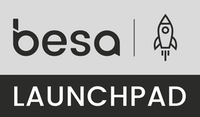Ten things students DON’T want in their PSHE lessons

Over 8000 young people have completed Chameleon PDE’s award winning ‘How Are You?’ student voice survey in the past academic year. This puts us in the privileged position of having comprehensive insight to their perceptions, behaviour, and views on PSHE lessons delivered in school. Here are 10 things we’ve learned so far from students.
1. Don’t keep telling us what we already know!
A spiral, progressive curriculum is essential, but this doesn’t mean repeating the same content year on year. Taking time to find out what they know, where the gaps are and moving forward from that point is much more likely to engage students and lead to better learning.
2. Enough with the videos!
While limited use of short videos can act as a stimulus, too much of anything is never a good thing as far as students are concerned. Worse still are entire PSHE programmes based on playing videos with the teacher expected to have very limited involvement in the session. Students want their teachers to effectively facilitate sessions not an online or virtual presence.
3. Not another worksheet…
Students regularly report that they want less writing and more discussion in PSHE. In addition to developing knowledge, a key component of good quality PSHE and personal development is to give students an opportunity to develop the skills they need for life, particularly good communication. Being able to practise these skills in a safe, well-structured learning environment is ideal and PSHE lessons lend themselves well to this. Writing skills are being practised in every other lesson so arguably a less important focus in PSHE.
4. Don’t try to be ‘down with the kids’, it’s not cool and we don’t like it!
Students want their trusted adults to behave like adults and not try to be part of their ‘tribe’. Whether it’s an external visitor or teacher in school, clear boundaries between students and adults are crucial in helping to facilitate effective learning and enables young people to feel more comfortable and engaged.
5. Topic overkill is a turn off.
Schools can sometimes over-focus on a particular topic due to it being raised as a national issue or realising there has been a gap in provision. However, there’s a fine line between raising awareness and going overboard. As soon as students feel that a subject is getting too much attention, they switch off at the first mention of the topic. This links closely with point 1, so it’s important to think carefully about how prior knowledge is built upon, new skills developed, and learning moved forward in a way that is not a carbon copy of what has gone before.
6. If you don’t take this seriously, why should I?
Within the same setting where all students are in theory following the same curriculum there is sometimes very different feedback about PSHE lessons. Students tell us that some teachers don’t cover the lesson at all or give it little credibility. Most teachers are not specialists in PSHE, so it’s completely understandable that some are out of their comfort zone. Staff CPD in PSHE will help build confidence and using well-planned resources with lots of teacher notes ensures that staff are fully equipped to facilitate sessions effectively.
7. So, what exactly has that got to do with me?
Time and time again students tell us that they want relevant PSHE that helps prepare them for life beyond school. A ‘one size fits all’ programme cannot provide this whether it’s the virtual teacher style video approach or a static un-editable programme on a portal that is taught ad infinitum in a set sequence laid out by the resource provider. Of course, there are elements of PSHE that are universally relevant to all students, however, YOUR students are likely to see themselves as individuals and the only way to know what your students regard as relevant content is to ask them.
8. Spare me the lecture!
According to the thousands of young people we have surveyed the worst type of delivery style in PSHE is a lecture. Irrespective of whether it’s a teacher, outside speaker or TED talk, students overall do not enjoy this approach. Given their request for more discussion, relevance, and a mix of activities this should come as no surprise. Of course, there are different types of learners, and the popularity of podcasts might lead us to believe that ‘lecture’ style delivery has some merit, however, when it comes to PSHE this gets a definitive thumbs down.
9. Can the ground just swallow me up now?
So young people want discussion in PSHE, but most certainly don’t want to be put on the spot and asked about their views, opinions, or negative experiences. Discussion in small groups does not always have to lead to whole class feedback. In fact, it may be much more effective and inclusive for groups to discuss issues in a distanced way with each other, the teacher moves amongst the groups and as the facilitator presents back key comments or questions and at that point invites further (voluntary) discussion rather than selecting individuals to report back on group findings. PSHE ground rules used in every lesson should always include the right to pass.
10. We’ve just struck 10 on the ‘cringeometer’!
Being put on the spot can be excruciating, ‘cool’ external speakers that confidently talk about the taboo topics often have a significant cringe factor, but in poll position, according to students is role play. Most teenagers cannot think of anything worse than standing up in front of their peers and acting out a scenario. There will always be a few budding actors who relish the opportunity to perform but they are few and far between, so this style of activity is largely irrelevant in PSHE as far as students are concerned. A more palatable version of role play is a seated activity where some background information and prompts about characters is given and students suggest what might happen next or choices the character could make, consequences of the choices, how these impact on the others in the scenario etc. Skills and knowledge can be addressed in this way, but one skill that may be better served in drama classes is acting.
In conclusion, if you want to know what your students want (and don’t want) in PSHE, ask them and use their feedback to inform your programme.




